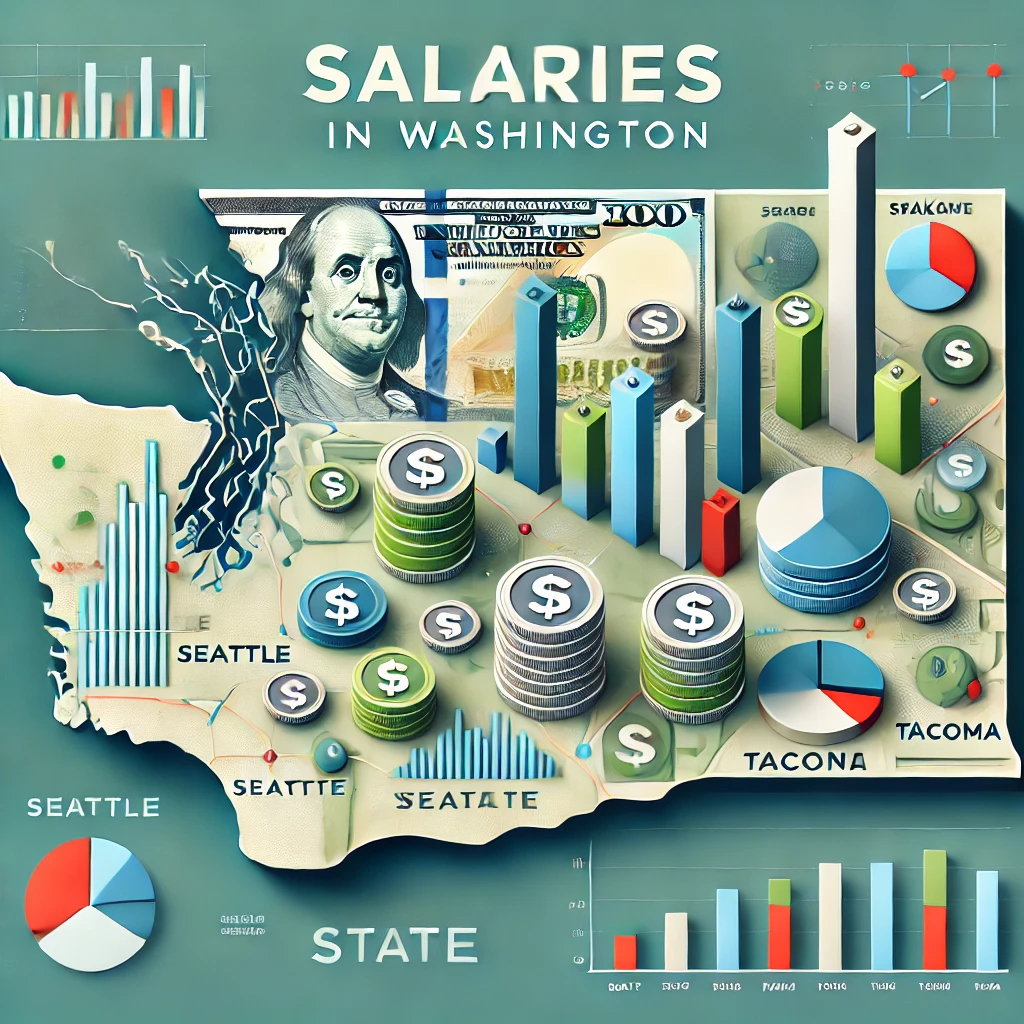Washington, D.C., the nation’s capital, is a vibrant hub of political, cultural, and economic activity. Its unique role as the seat of the federal government, coupled with a thriving private sector, makes it one of the most dynamic job markets in the United States.
Salaries in Washington, D.C., reflect its status as a major metropolitan area, with wages influenced by factors such as government employment, private industry presence, cost of living, and professional demand.
Overview of the Job Market
Washington, D.C., boasts a robust job market supported by its diverse industries. The federal government is the largest employer, but the private sector has a significant presence in industries such as technology, consulting, education, healthcare, and media.
Additionally, the city is home to numerous nonprofit organizations, think tanks, and international agencies.
The region’s workforce is highly educated, with a high percentage of residents holding advanced degrees. This trend contributes to the competitive nature of the job market and, consequently, to the relatively high salaries across many sectors.
Median Salaries Across Industries
The median household income in Washington, D.C., is among the highest in the nation, with workers across industries generally earning above-average wages. Here’s a breakdown of salaries in key sectors:
- Government and Public Administration
Federal employees in Washington, D.C., often benefit from competitive salaries and comprehensive benefits. Positions range from administrative roles to specialized careers in law, policy, and international relations.
- Average salary: $95,000–$120,000 annually (depending on the role and seniority).
- Technology
The technology sector in D.C. has seen significant growth in recent years, driven by cybersecurity, data analytics, and software development. Many tech companies support government agencies, making this sector integral to the local economy.
- Average salary: $100,000–$150,000 annually for IT professionals and software developers.
- Legal Services
D.C. is a hub for legal professionals, given its proximity to the Supreme Court, federal agencies, and numerous law firms. Legal salaries vary widely but tend to be among the highest in the nation.
- Average salary: $80,000–$200,000 annually, with top-tier attorneys earning even more.
- Education and Nonprofits
The city is home to prestigious universities such as Georgetown University and George Washington University, as well as influential nonprofits.
- Average salary: $50,000–$100,000 annually, depending on the role and organization.
- Healthcare
Healthcare professionals in Washington, D.C., earn competitive salaries due to the high demand for quality medical care in the region.
- Average salary: $70,000–$180,000 annually, with specialists and surgeons on the higher end.
- Media and Communication
The city’s proximity to government and political organizations makes it a key player in journalism and communications.
- Average salary: $60,000–$120,000 annually.
Cost of Living Considerations
While salaries in Washington, D.C., are relatively high, they must be considered alongside the city’s high cost of living. Housing is the largest expense, with median home prices exceeding $600,000 and average rent for a one-bedroom apartment around $2,000–$3,000 per month.
Other expenses, such as transportation, dining, and healthcare, also contribute to the cost of living.
Factors Influencing Salaries
Several factors impact salaries in Washington, D.C.:
- Education and Skills
Higher education levels often translate into higher earning potential. Many employers in D.C. prioritize advanced degrees and specialized certifications. - Industry Demand
Certain sectors, such as technology and healthcare, are experiencing high demand, which drives up wages. - Experience
Professionals with years of experience or a strong track record in their field typically command higher salaries. - Employer Type
Salaries differ significantly between government jobs, private companies, and nonprofits, with the private sector often offering higher pay but fewer benefits compared to government roles.
Gender and Racial Wage Gaps
Despite the generally high salaries, wage gaps persist in Washington, D.C. According to recent studies, women earn approximately 84 cents for every dollar earned by men in similar roles.
Racial disparities are also evident, with Black and Hispanic workers earning less than their White and Asian counterparts on average. Addressing these disparities is a priority for policymakers and organizations alike.
Future Trends
The job market and salaries in Washington, D.C., are expected to evolve in response to emerging trends:
- Remote Work
The rise of remote work may lead to more competitive salary negotiations, as professionals consider opportunities outside the D.C. area. - Green Jobs
As the federal government emphasizes sustainability, green jobs in renewable energy and environmental policy are likely to grow. - Technology Advancements
Fields like artificial intelligence and cybersecurity will continue to drive demand for tech-savvy professionals.
Conclusion
Salaries in Washington, D.C., are reflective of its unique position as a center for government and diverse industries. While the cost of living remains a significant factor, the city offers lucrative opportunities for professionals across various fields.
With a commitment to education, innovation, and equity, Washington, D.C., is poised to maintain its status as a premier destination for ambitious job seekers.




